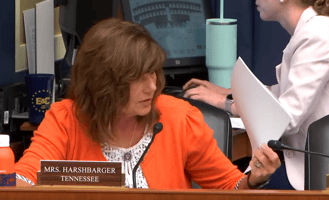FOR IMMEDIATE RELEASE September 12, 2025
APC Releases 14-Point Blueprint for Smarter, Streamlined Federal Regulation to Protect Patient Access to Compounded Medications
Media Contact: Robert Conner at rconner@scottcircle.com
WASHINGTON, DC — May 12, 2025 — In response to President Trump’s Executive Order to improve government efficiency, the Alliance for Pharmacy Compounding (APC) has released a new Blueprint for Eliminating Redundant, Unauthorized, or Ineffective Regulation That Impedes Patient Access to Compounded Drugs.
“A strong regulatory framework for pharmacy compounding is essential. But unnecessary regulation that fails to deliver a measurable safety benefit is more than a nuisance, it’s a threat to patient access and a burden on the nation’s small compounding pharmacy businesses,” said APC CEO Scott Brunner.
APC’s Blueprint identifies outdated, unauthorized, or unscientific policies for elimination, offering a more efficient, effective regulatory approach that preserves safety without undermining access or innovation.
Key recommendations in the Blueprint include:
- Eliminating the obsolete 1997 FDA-State MOU requirement, which was rendered unnecessary by the Drug Quality and Security Act of 2013.
- Preventing FDA overreach on 503A “Demonstrably Difficult to Compound” rules, ensuring that only individual drug products, not entire categories, are restricted.
- Safeguarding access to compounded hormone therapies, which millions of patients rely on, especially women.
- Rejecting unbalanced FDA communications that conflate compounded medications with counterfeit or unsafe products.
- Accelerating completion of the 503B bulks list to support hospital and clinic access to essential compounded medications.
- Calling on DEA to clarify constructive transfer and anticipatory compounding policies, aligning enforcement with real-world clinical practice.
The Blueprint also urges Congress and the Administration to ensure FDA and DEA regulations are grounded in statute, supported by evidence, and respectful of prescriber and patient needs.
Compounding pharmacists prepare customized medications prescribed by healthcare professionals to meet the individual needs of children, adults, and animals. Those can include tailored dosage strengths or forms not available in a manufactured drug. As authorized by federal law, compounders may also create a copy of a commercially available FDA-approved product when that drug is on the FDA's drug shortages list.
“Our goal is to protect the vital role compounding plays in healthcare,” said Brunner. “This Blueprint provides a commonsense path forward, reducing regulatory confusion, restoring clinical flexibility, and ensuring patients can access the personalized therapies they need.”
The full Blueprint is available at a4pc.org/blueprint.
###
About APC
The Alliance for Pharmacy Compounding is the industry trade association and the voice for pharmacy compounding, representing more than 600 compounding small businesses — including compounding pharmacists and technicians in both 503A and 503B settings — as well as prescribers, educators, researchers, and suppliers. Learn more at compounding.com or a4pc.org.


